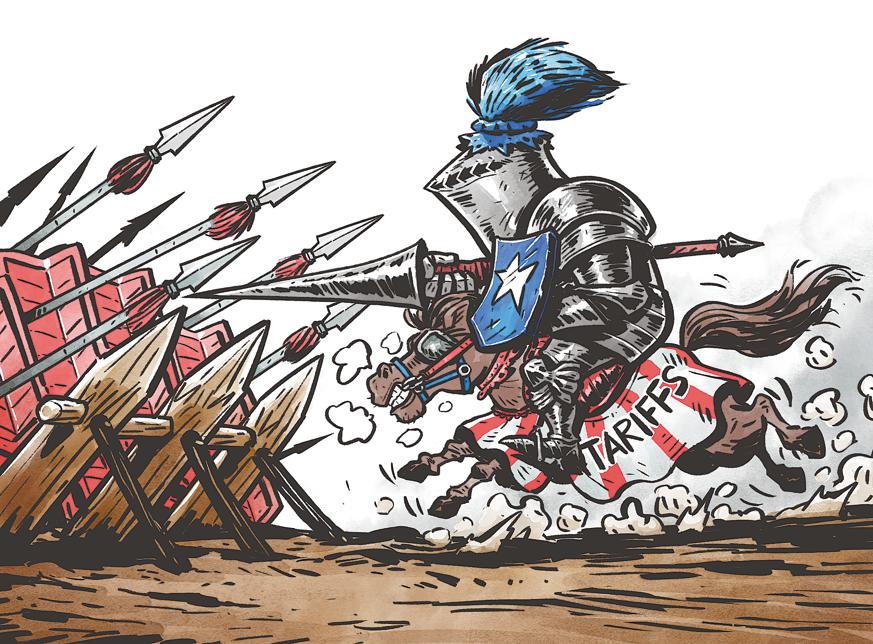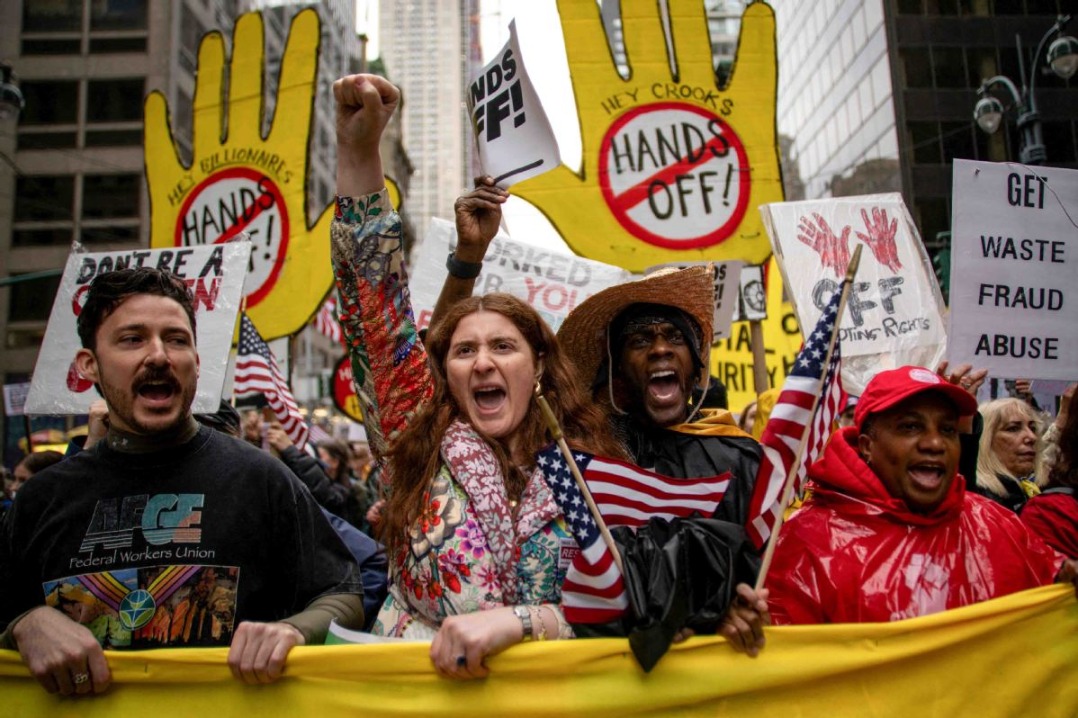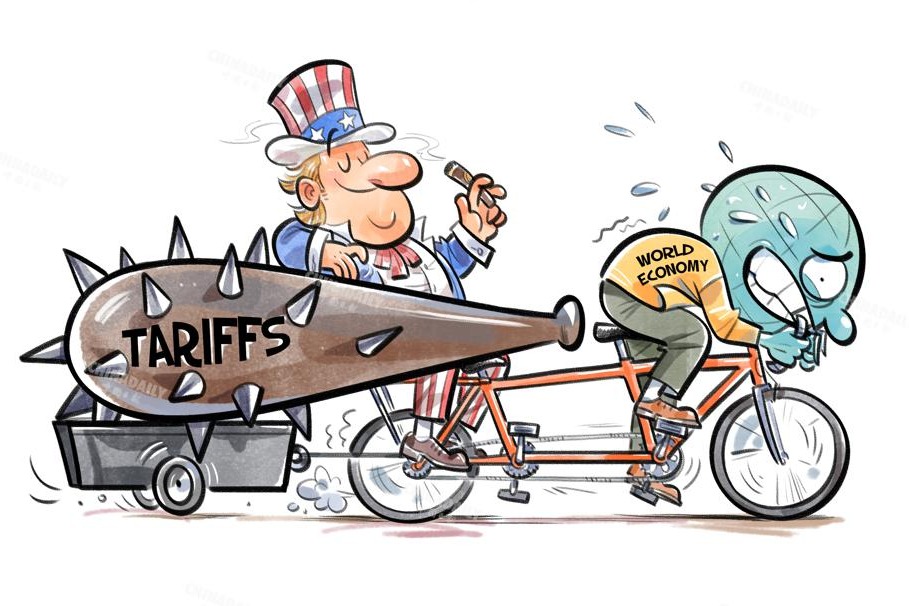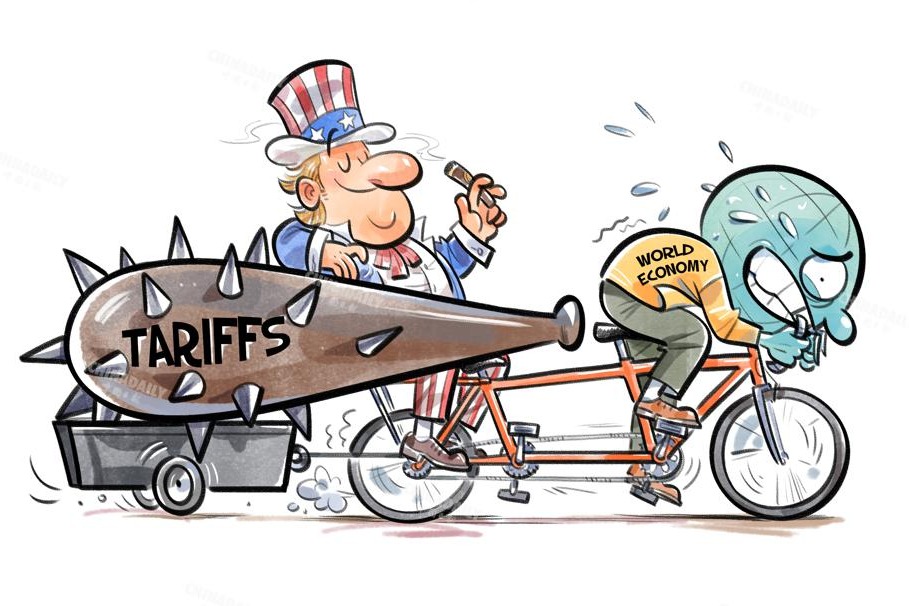Editorial flash: Tariff coercion won't work


The US president's latest tariff threat against China is further proof that the latter's prompt, justified and resolute retaliatory measures against his April 2 "reciprocal tariff" levies have caught his trade policymaking circle unexpected.
Three days after warning China "played it wrong", the US leader threatened on Tuesday to impose an additional 50 percent tariff on Chinese imports starting from Wednesday and intimidated "all talks with China concerning their requested meetings with us will be terminated".
Notably, the United States has seen wide protests opposing the administration's tariff policy that has precipitated a market shudder and soaring consumer prices since Friday.
To some extent the US leader's latest threats toward China is part of his tactics to divert domestic attention and ease his administration's pressure, as he has largely kept silent on the dramatic market falls and nationwide protests.
He has said that "negotiations with other countries, which have also requested meetings, will begin taking place", while claiming to have turned his back on China. A country that has done nothing wrong, as it has only sought to protect its own legitimate rights and interests by giving the US some of its own "medicine". The US president also intends to add pressure on other major economies, including the European Union and Japan, that are mulling counterattacks against the US' tariff war.
Which exposes what the US administration fears most is that there will be a united front among its tariff targets, which will all take resolute and justified countermeasures against its tariff coercion. If that happens, the US leader's initial plan of cracking different countries one by one will be doomed.
That being said, the US, under the banner of "reciprocity", is doing nothing but trying to advantage itself at the cost of legitimate interests of other countries, and put "America First" above international rules through hegemonic, coercive and bullying means. Such domineering behavior will inevitably face widespread opposition from the international community.
As the spokesperson for the Chinese embassy in the United States Liu Pengyu pointed out, the US leader's latest tariff threat is a typical act of unilateralism, protectionism and economic bullying. China has repeatedly stressed that pressure or threats are not the right way to deal with China, and China will firmly safeguard its legitimate rights and interests.
China-US economic relations should be mutually?beneficial and win-win in nature. The US should strive to work to realize the shared aspiration of the peoples of the two countries and the world for common prosperity, and, mindful of the fundamental interests of the two countries, stop using tariffs as a weapon to suppress China economically and stop undermining the legitimate development rights of the Chinese people.
As the Commerce Ministry said on Tuesday, trade disputes cannot be resolved, but are only aggravated by trade wars. If the US side is really willing to act with good faith to settle what it sees as an "unfair" trade "imbalance" with China, it should work with China to resolve it by talks and consultations with mutual respect and on an equal footing.
If not, China will continue to take resolute countermeasures to safeguard its sovereignty, security, and development interests. China does not provoke trouble, but nor is it intimidated by it. Pressure and threats are not the right way?for any country to deal with China.
































